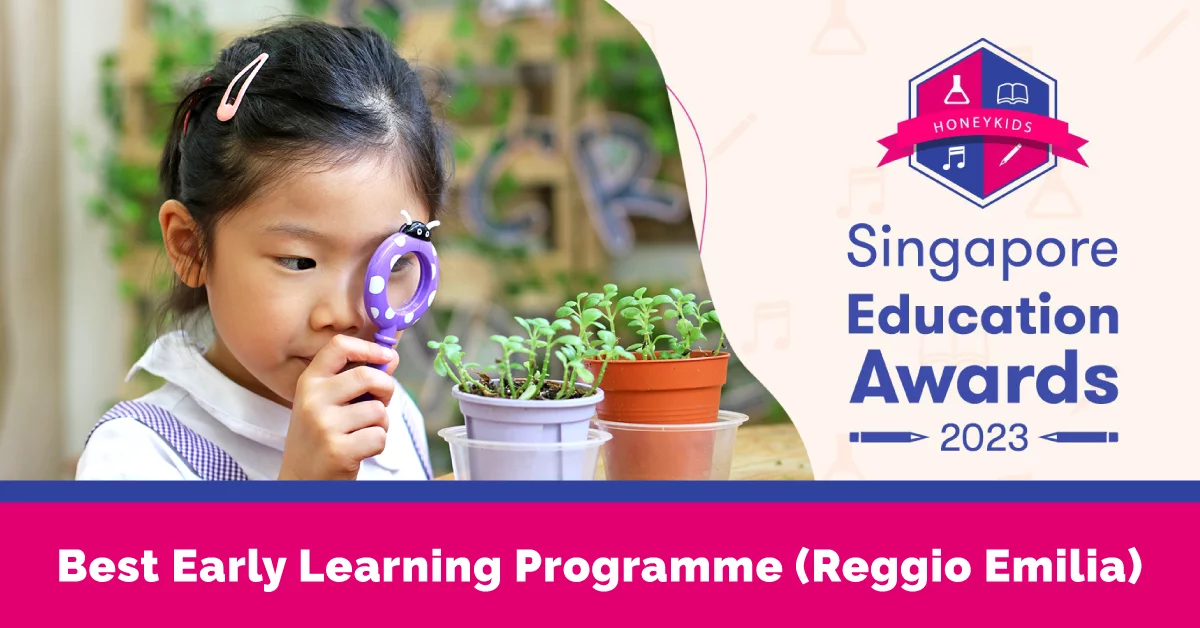
Reggio Emilia Approach and Its Benefits
Reggio Emilia Approach and Its Benefits
Reggio Emilia Approach is a philosophy and way of teaching that helps children develop their natural curiosity and prepare them for life. It focuses on the learning process of each child to understand their needs and offer them a personalised education. In this article, we’ll explore what this is, its importance, and whether it could be ideal for your child in his or her learning journey.

What Is The Reggio Emilia Approach?
The Reggio Emilia approach is a child-centred philosophy. Learning is based on the interests and needs of the child. The teachers encourage children to explore, create, and experiment to learn new things. It’s an international movement that aims to foster the development of children’s social skills and creative problem-solving abilities through hands-on experiences in the classroom.
The method was developed by Loris Malaguzzi, who was born in Reggio Emilia, Italy, in 1919. He proposed this approach when he founded a preschool in Reggio Emilia called La Casa dei Bambini (The Children’s House). He believed that even young children are capable of creating their own experiences with materials found around them, such as sticks or cardboard boxes, which they can explore or manipulate using their senses of touch and sight.
Why Is the Reggio Emilia Approach Important?
The Reggio Emilia approach is a unique method of early childhood education that allows children the freedom to explore, create, and learn. Instead of traditional teacher-led classrooms, this approach puts the child at the centre of their own learning experience.
The Reggio Emilia approach focuses on five main principles:
- A strong respect for children’s individuality and culture
- A democratic classroom environment where all children are respected and valued
- An emphasis on collaborative learning rather than competition among peers or between students themselves
- The incorporation of real-life experiences into classroom learning environments (for example, taking field trips to grocery stores.)
- The enrichment provided by specialised materials such as blocks or small cars
How Can the Reggio Emilia Approach Help Children

- Develops social skills in children. It teaches children how to deal with others, including learning how to resolve conflicts peacefully.
- It encourages creative problem-solving abilities in children, which are beneficial when they’re faced with challenges in adulthood.
- It teaches children about their world and how it works, allowing them to think critically about their experiences and understand their place in the world around them.
- It teaches children independence by fostering self-directed learning skills that become invaluable as they grow older. This independence also includes being able to work collaboratively with others on projects or assignments.
How Does This Approach Benefit Your Child?
- Children are at the centre of their educational experience. They direct what they want to learn about and how they want to learn it. They also guide their own play activities, which help them connect concepts across subject areas (for example, maths used during art projects or science concepts explored through drama).
- Teachers work in partnership with parents or caregivers who share responsibility for supporting each child’s growth in academics and social skills.
Children Are Regarded as Active Participants in the Educational Process
This is a unique learning method for children because it allows them to be highly involved in their own education, allowing them to learn at their own pace.
This approach works well with a lot of different teaching styles, including Montessori, Waldorf, Reggio Emilia and others. The key idea behind this approach is that children should be taught by experiencing things themselves rather than being told about them or told what they should think about something. It’s important that teachers don’t assume that they know everything there is when it comes down to teaching fellow human beings how they can learn best!

The Reggio Emilia approach is a philosophy that seeks to educate children in an environment that promotes their creativity, independence, and social interactions. It’s based on the belief that all children are capable of learning and developing at their own pace. This method encourages parents to play an active role in their child’s education by playing games together and encouraging them to explore their surroundings. It may seem like it would take more time than traditional methods but it saves time because children learn at their own pace with little support from adults!
Our Reggio-Inspired Project InquiryTM, unlike traditional project work, is initiated and led by preschoolers, with teachers serving as guides and facilitators. Children are viewed as active participants rather than as objects of instruction, and the Project Inquiry process serves as an “infrastructure” for children to observe, experiment, and unravel important concepts.
Our highly qualified curriculum team creates programmes by determining learning outcomes for each age group based on children’s physical, emotional, and cognitive development. Teachers in preschools guide and satiate children’s curiosity by providing enriching opportunities and experiences that encourage exploration and discovery.
Every parent understands how it feels to have their child do something seemingly “out of character” and wonder…where did he/she pick it up from? Or when you are doing household chores or preparing to go to work, and they picked that exact time on purpose to break something. It can be increasingly frustrating, and it would be easy for you to snap at them. This is how not to set an example.
Mulberry School Tour
Our Locations
Click here to visit our Contact Us page and view the preschool/infant care centres conveniently located near you.
CONNECT WITH US
USEFUL LINKS
About Us
Mulberry Learning prides itself on making the preschool experience both memorable and enjoyable while transforming a child into a competent explorer, an imaginative thinker, and a creative problem solver. Through our proprietary award-winning curriculum, unique Habits of Mind programme and dedicated staff who are passionate about imparting positive attitudes, Mulberry Learning holds strong in its promise to deliver a holistic education that nurtures the Future Ready Child.
A PREMIUM PRESCHOOL BRAND UNDER GLOBAL EDUHUB





